- March 2024
The International Institute of Sustainability (IIS) hosted a final event presenting project findings from the vast array of research papers and tools developed as part of the TRADE Hub in Brazil. The event was hosted at the AYA Earth Hub in Sao Paulo on 29 February 2024 and focused on understanding soy and cattle supply chains, and the national and global policies governing deforestation across major biomes such as the Amazon and Cerrado. To explore these themes, an audience of policymakers, journalists and experts tuned in for a series of panels and roundtables with trade and agriculture experts.
Brazil, the most biodiverse country in the world and a major food supplier, can help drive sustainable agricultural commodity supply chains
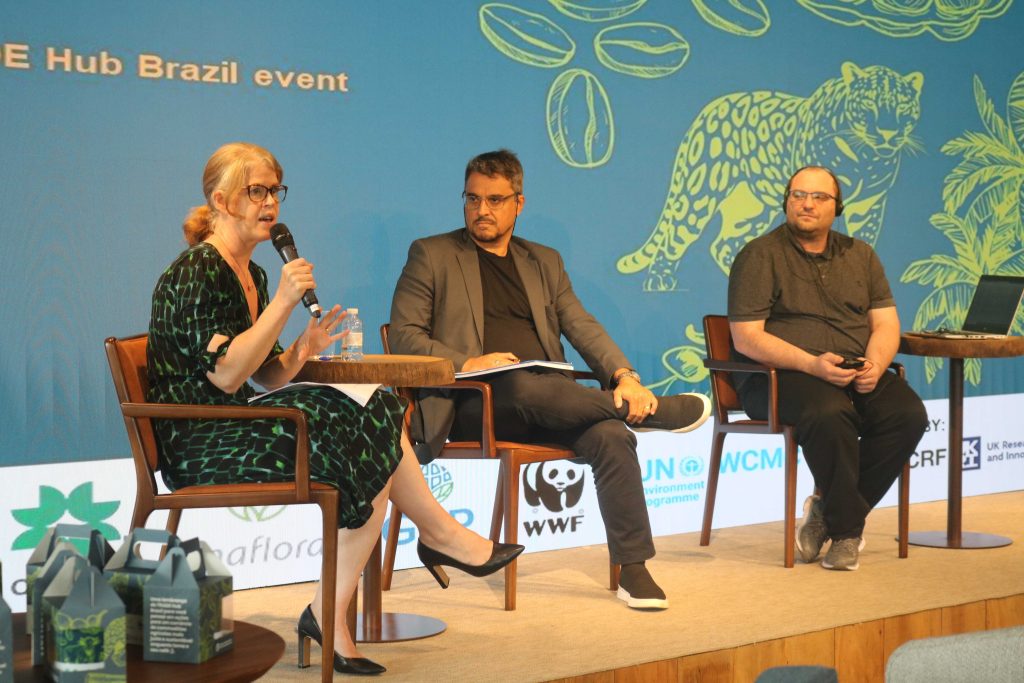
The first panel of the day explored the deforestation-free landscape governing the production and consumption of agricultural commodities in relation to UK and Brazil policy. Speakers highlighted the importance of Brazil’s trade actions being both the most biodiverse country in the world and a major food supplier.
With regards to UK policy, Sarah Clegg, Minister Counsellor and Deputy Consul General at the UK Foreign, Commonwealth and Development Office clarified that the UK deforestation-free regulation is still being negotiated. Unlike the EU deforestation-free products regulation, the UK legislation will only apply to illegal deforestation, with the goal of supporting the implementation of national regulation within producer countries.
However, Andre Lima, Extraordinary Secretary for Deforestation Control and Territorial Environmental Planning at Brazilian Ministry of Environment pointed out the difficulty of knowing whether deforestation is legal or illegal, with the majority of deforestation in the Amazon being illegal and oftentimes hard to measure. This demonstrates the importance of transparency and traceability in agricultural supply chains to provide better data. However, traceability will require technical assistance and capacity-building efforts to ensure producers, particularly smallholders, can comply with legislation.
The socioeconomic impacts of soy production are not positive for all
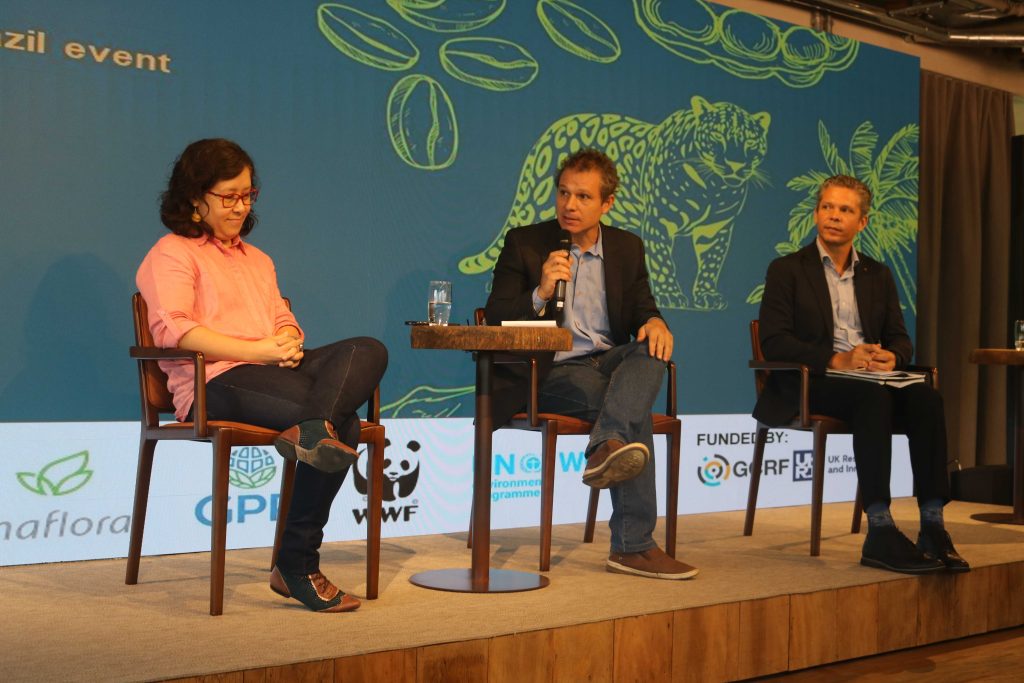
TRADE Hub research in Brazil has focused on two major agricultural commodities: soy and cattle. The two are complimentary, with around 80% of soy produced globally being used for animal feed for livestock such as cattle. The next panel examined the social and environmental impacts of both. Louise Nakagawa, Researcher at the Brazilian Centre for Analysis and Planning (CEBRAP) explained that though soy production has had positive impacts for economic growth in Brazil, the distribution of these benefits varies locally. For example, in the Northwest of Rio Grande do Sul production is centered around family farming, and this region has the best socioeconomic indicators. However, in the Matopiba region wealth is concentrated within large-scale farms and not evenly distributed to smaller producers.
Alberto Barretto, Coordinator of Sustainable Rural Development at USP-ESALQ-GPP then launched a video highlighting ways to improve the environmental sustainability of cattle farms to balance increasing GDP and meeting food security with managing land-use. The video outlined the Brazilian Low Carbon Agriculture (ABC+) plan to restore 30 million hectares of degraded pastures through regenerative agriculture.
Impact across the TRADE Hub: policy influence, citations and events
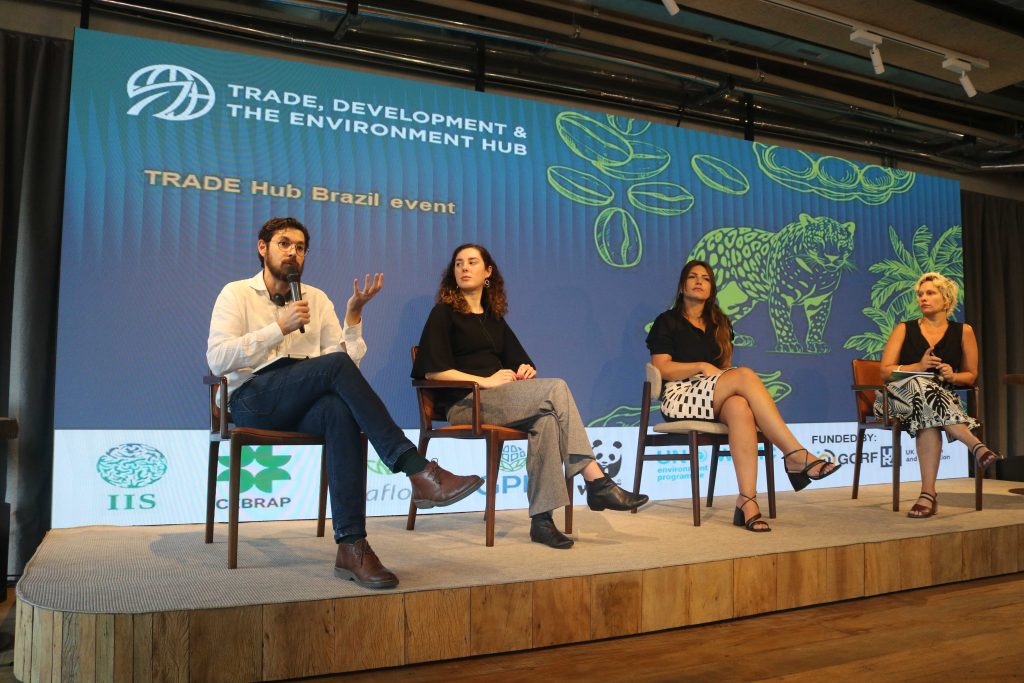
After lunch, the audience reconvened for an afternoon focused on the TRADE Hub’s achievements in Brazil and beyond. Bruna Pavani, Researcher at the International Institute for Sustainability (IIS) presented the highly impactful PLANGEA platform which identifies priority areas for conservation and restoration actions. The platform has had a range of uses, including involvement in national legislation on protecting vegetation.
Aisha Niazi, Communications Officer at United Nations Environment Programme World Conservation Monitoring Centre (UNEP-WCMC) then zoomed out to wider engagement and outreach impact the Hub has had, including participation at the World Trade Organisation Public Forum and thousands of journal citations. The panel used this opportunity to zoom into specific papers, including Researcher at the University of Reading, Marcello De Maria’s soy policy toolkit which assesses opportunities for policymakers to bring together national and international policies on sustainable soy.
New documentary “Coexistance” launches
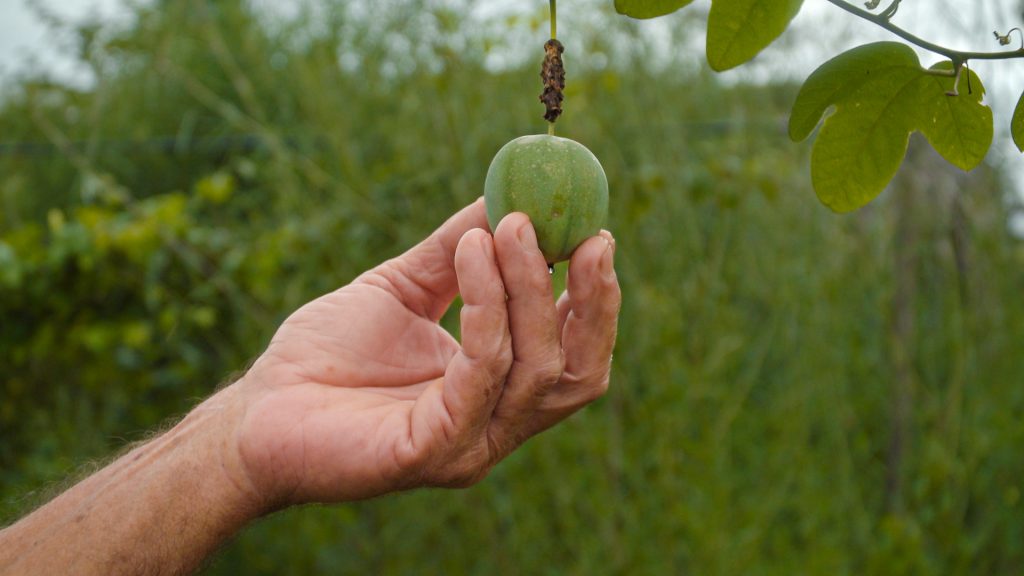
Image by Thomas Mendel, filmmaker of “Coexistence”, a documentary based in the Brazilian Cerrado
Ebida Santos, Communications Consultant for the TRADE Hub and Louise Nakagawa launched “Coexistence”, a documentary showcasing the challenges faced by smallholder farmers when producing organic fruits and vegetables in the Cerrado and the search for better practices by soy producers. It dives into the barriers these farmers face when trying to sell produce in competitive local and international markets and explores their connection to the land.
Complete solutions provide support to smallholders
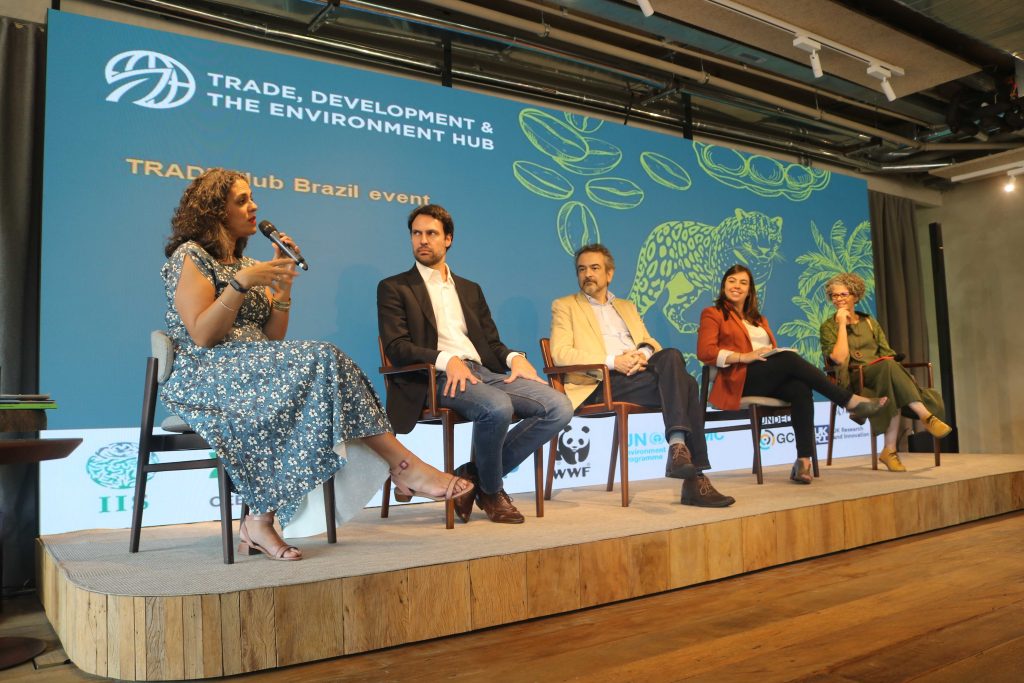
The final event of the day was a roundtable focused on deforestation and trade. Speakers began by highlighting the importance of understanding the impact of Brazil’s diverse geography on its political context. The panel stressed that policy responses must recognise and address the localised challenges across Brazil’s municipalities. Richard Smith, Executive Director of the PCI Insitute highlighted the example of Mato Grosso, a region well known for exporting meat, that developed an agri-food strategy focused on local issues.
Speakers also recognised that dialogue must be focused on solutions as people are tired of bad news stories. These solutions will also require financial support for smallholders to ensure they are achievable and inclusive for all.
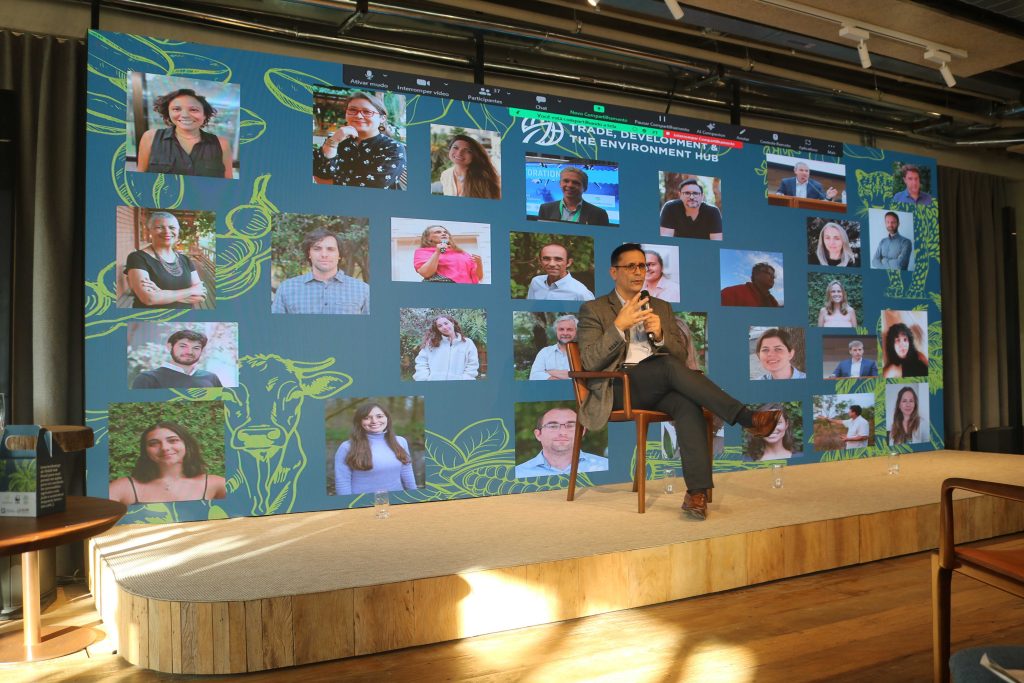
As the day came to an end, Rafael Loyola, Director of IIS reflected on the many dedicated researchers and partners behind TRADE Hub’s success in Brazil. He drew attention to a central theme of the day: support and justice for smallholder farmers. Rafael left the audience with a request to think about “how to make trade inclusive to smallholder farmers because big producers will find a way.”
Please find the event recording here.